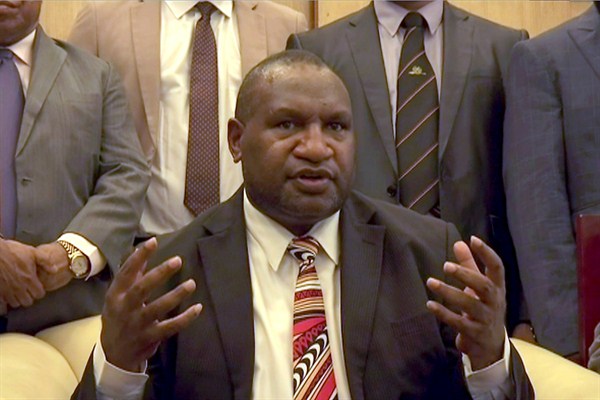When Peter O’Neill resigned in late May after eight years as prime minister of Papua New Guinea, he left behind a troubled legacy of corruption allegations and economic mismanagement. His successor, James Marape, has pledged to take on corruption and make legal changes to ensure that benefits from the impoverished country’s oil and gas reserves are shared more equitably. But at this early stage, it is not yet clear that Marape will follow through on those promises, says Michael Kabuni, a lecturer in political science at the University of Papua New Guinea. In an email interview with WPR, he explains why.
World Politics Review: What led to Peter O’Neill’s downfall?
Michael Kabuni: Peter O’Neill’s downfall began with the resignation in April of his finance minister, James Marape, who later succeeded O’Neill as prime minister. Marape represents a parliamentary district in central Hela province, where a multibillion-dollar natural gas project, led by ExxonMobil, is located. Soon after he resigned, MPs from other resource-rich provinces followed Marape’s lead. The resignations followed the signing of a deal on April 9 for a new $13 billion natural gas project called Papua LNG, which allocated only 2 percent of revenues to landowners. Marape also blames the government for not paying landowners and provincial governments of Hela and neighboring Southern Highlands province their 4.25 percent of the revenues from ExxonMobil’s existing natural gas project.

